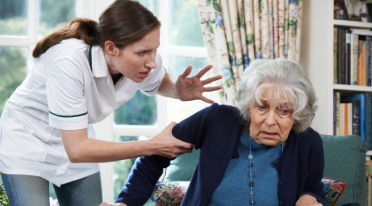Preparing to Advocate for Loved Ones
Nursing homes are safe havens of care and comfort for our elderly ones. Unfortunately, there are sad cases where these facilities do not fulfill their fundamental duty. This failure to meet the basic needs of an older individual constitutes nursing home negligence, as defined by the Centers for Disease Control and Prevention (CDC). These essential requirements encompass access to water, nourishing meals, adequate clothing, safe shelter, hygiene maintenance, and vital medical care.
Distinguishing Between Terms
How do we distinguish negligence from abuse? Seeking a deeper understanding of how nursing home negligence differs from outright abuse is essential to understanding the intricacies of nursing home negligence fully. When a resident is subjected to physical, emotional, sexual, or any harm with malicious intent - it is considered abuse. Financial harm with malicious intent is also considered abuse. On the whole, it involves direct actions to harm an elderly individual.
Negligence, on the other hand, involves the passive inaction of responsibilities of home staff or employees that lead to physical or emotional harm to its residents. While negligence sometimes may not be on purpose, it can have dire consequences that include severe injuries or, in some tragic cases, loss of life. Different types of nursing home negligence can occur in various forms, affecting the residents' emotional security or physical well-being. The World Health Organization (WHO) has outlined the potential for severe illnesses and conditions caused by both types of neglect.
You can seek an attorney for your claim if your elderly loved one is neglected in the nursing home.
Physical Nursing Home Negligence
Physical nursing home negligence can arise when failing to provide proper nutrition for elderly residents, which risks leading to serious health issues and sometimes death. Any failure to attend to the resident's physical needs would constitute negligence. Other examples would be not assisting the resident to the bathroom and a slip and fall occurring or giving the resident their medications at the wrong time. This form of negligence, along with others, can result in severe injury or death.
Here are some other examples of negligence you should know.
- Nutrition and Hydration: Failing proper nutrition or hydration can lead to serious health issues.
- Assistance with Mobility: Neglecting to assist elderly residents with restroom visits can result in slip and fall injuries when they attempt to move independently.
- Medication Management: The failure to administer medications correctly and on time can lead to severe injuries or fatalities.
Neglecting any physical needs of elderly residents can result in sudden health decline or, worse cases, fatalities. Families put their trust in nursing homes to ensure they receive the care necessary and supervision for a healthy quality of life. When the nursing home falls short in this regard, negligence becomes very evident.
Emotional Nursing Home Negligence
Emotional neglect differs from physical. While physical neglect is linked to bodily injuries or death, emotional neglect occurs when the emotional needs of the resident are not met. This can include verbal abuse, or failing to communicate properly with the resident’s family members who intend to visit.
Residents in nursing homes who are already dealing with neurocognitive diseases like Alzheimer's or dementia may experience evident emotional and physical transformations. To better understand how to safeguard your loved ones, it is crucial to familiarize yourself with the warning signs that indicate nursing home negligence.
The National Institute on Aging (NIA) has emphasized several red flags that should not be overlooked:
- Unexplained Changes in Weight: If a resident experiences sudden weight loss or gain without apparent reason, this could signify neglectful care.
- Dehydration and Malnutrition: Failure to provide sufficient food and hydration is an alarming indicator of potential negligence within the facility.
- Infections and Unaccounted Bedsores: Instances, where residents develop unexplained infections or bedsores can raise concerns about inadequate attention given by caregivers.
- Lack of Personal Hygiene Support: Nursing home staff must assist residents in maintaining their hygiene regularly as part of proper care protocols.
By being vigilant regarding these warning signs, you can take proactive measures towards ensuring the well-being of your loved ones residing in nursing homes while promoting a safe environment for all residents affected by neurocognitive disorders such as Alzheimer's or dementia.
If you suspect your elderly loved one has suffered harm due to negligence, promptly communicating your concerns with the nursing home management is vital.
Should you want to take legal action against a negligent nursing home, be aware that Florida gives you the right to sue for financial compensation. Please don't allow a negligent party, whether a caregiver or the nursing home itself, to evade accountability for the injuries they have caused.
In times of vulnerability, trust in legal experts who can advocate for your loved ones. Steve Watrel has years of experience dealing with nursing home abuse, and is dedicated to bringing justice to your situation. Legal action may be necessary to ensure the safety of your elderly loved ones, present and future. Call Steve Watrel, The Nursing Home Abuse Expert®, at (904) 747-9672 today for a free legal consultation.




